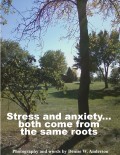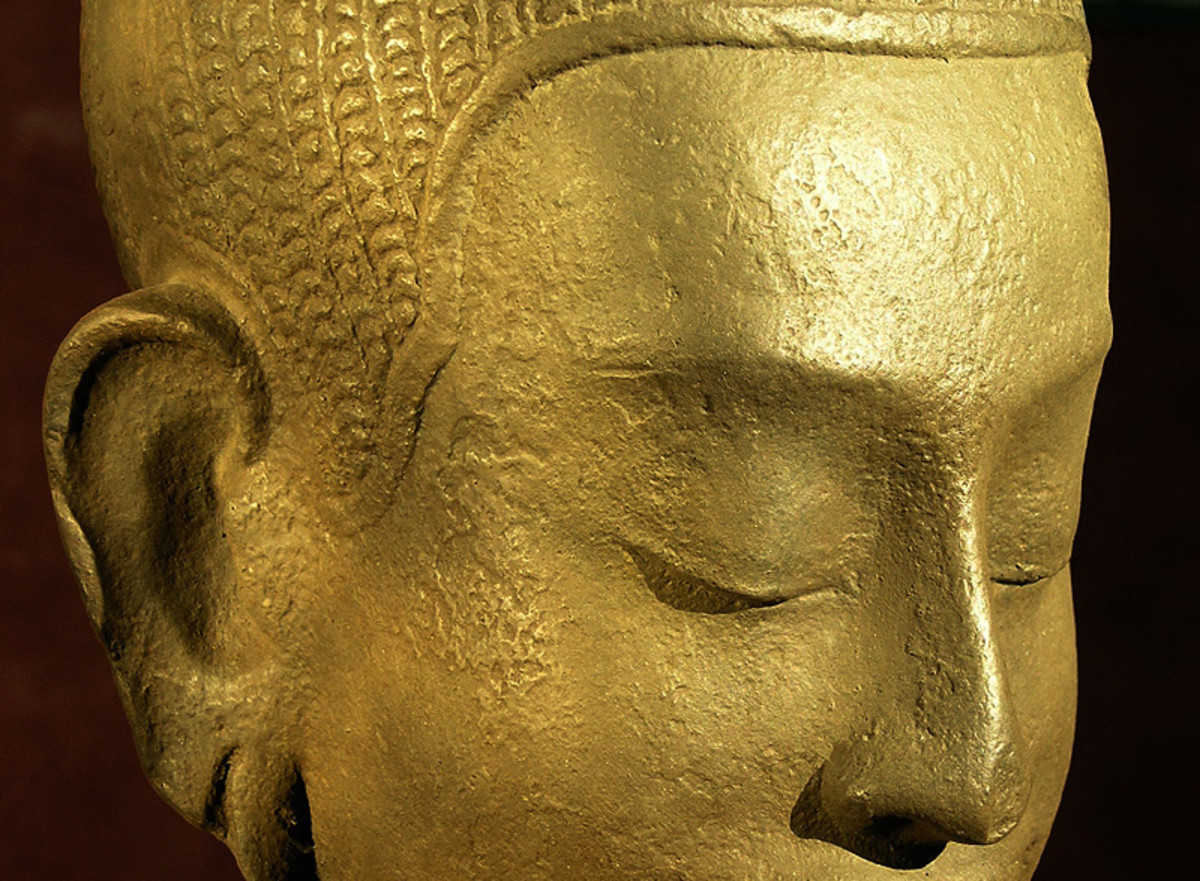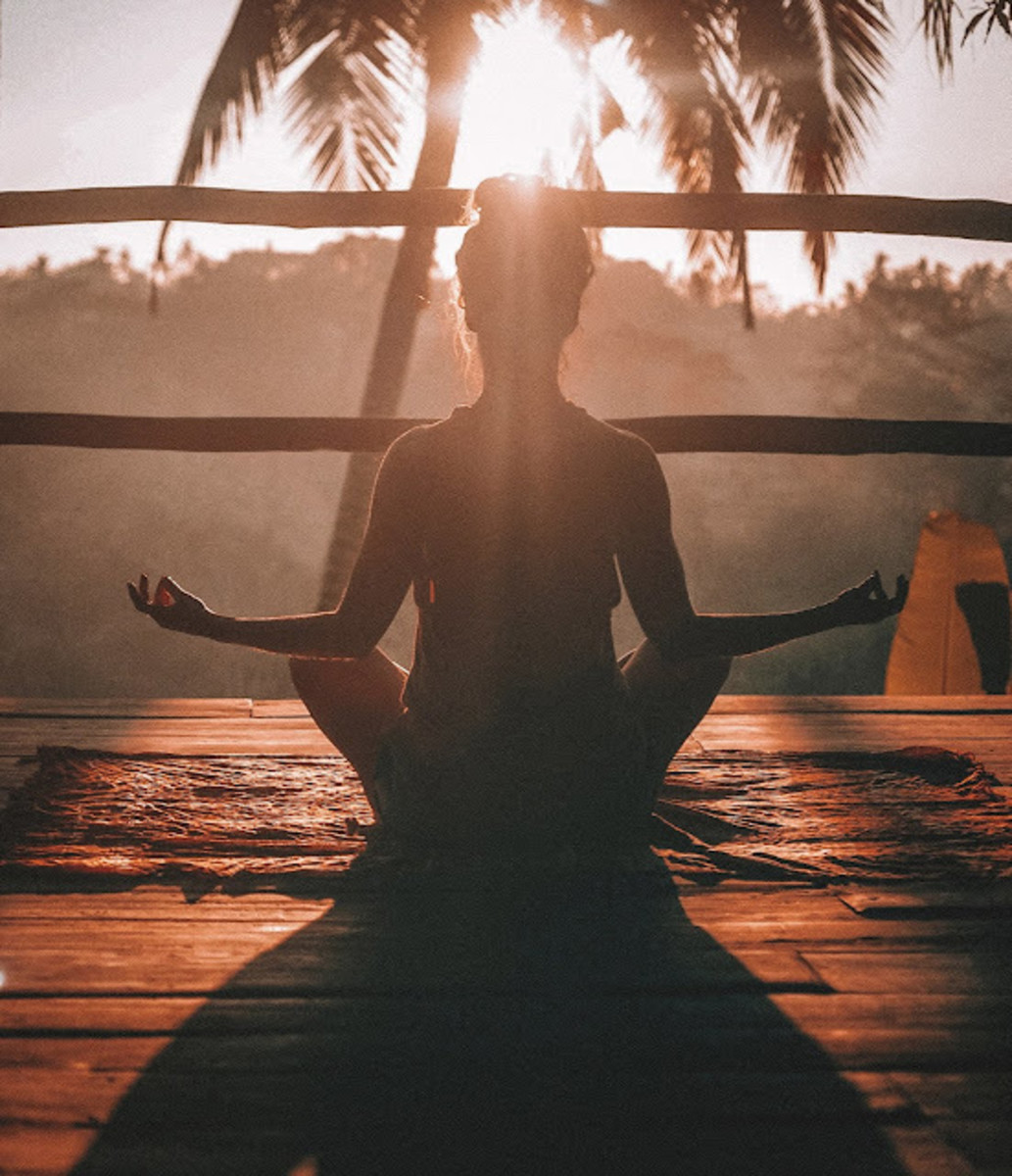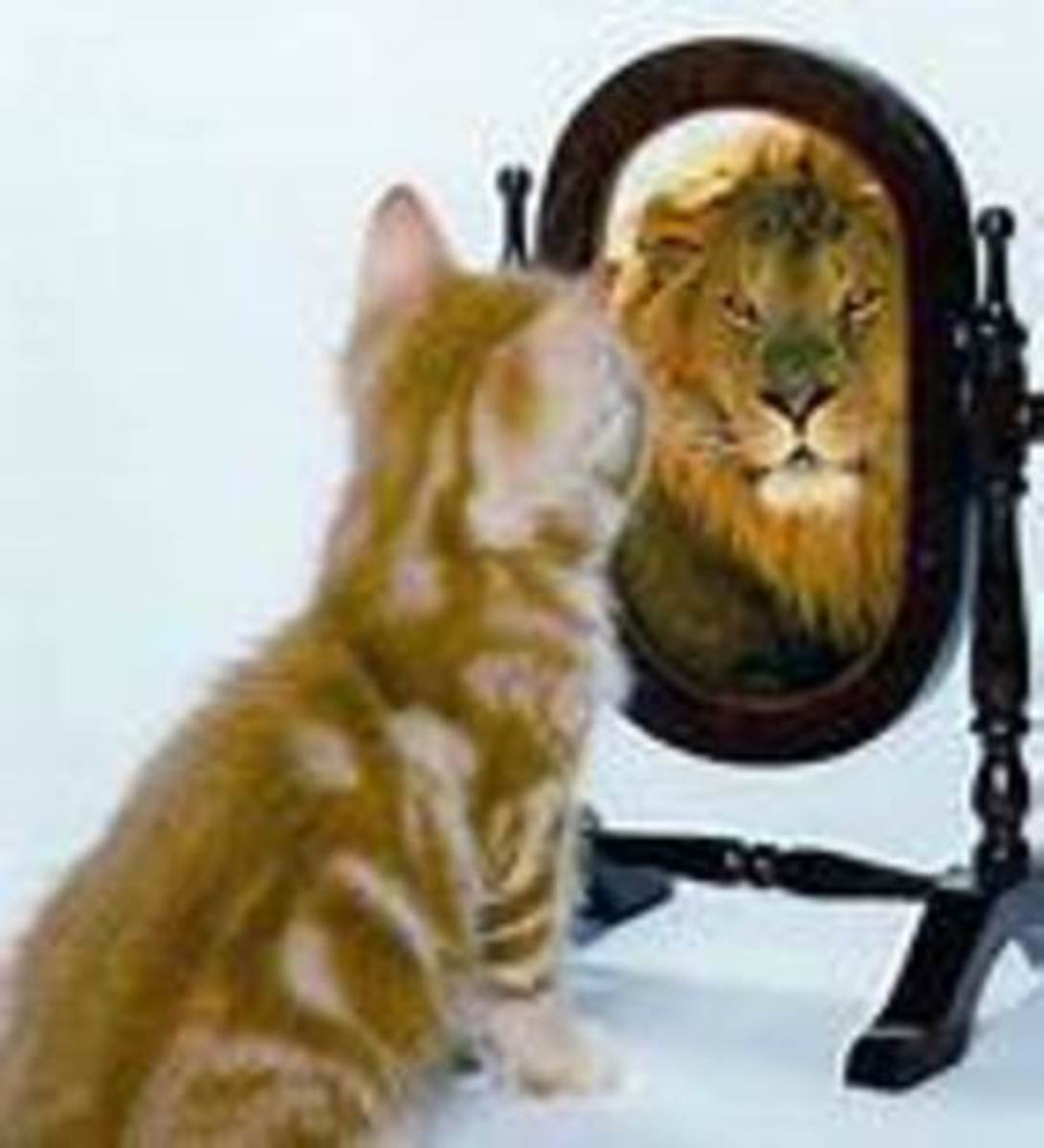Different Methods to Help You Calm Down and Relieve Stress
About the Author
As a member of the human race for more than five decades, I have had my own episodes of feeling stressed. I've used various methods over the years to relieve stress and anxiety and am constantly searching for new and better ways to do so.
So You're Looking for Ways to Relieve Stress and Anxiety...
To borrow a phrase from Bob Seger, you've got "so much more to think about; deadlines and commitments, what to leave in, what to leave out."
And that's just the stuff of everyday life. Add in work issues, health concerns, family dilemmas, living on a budget or special occasions that roll around and it's easy to understand why so many people are feeling anxious, overwhelmed, depressed, or just plain stressed-out.
Since it is impractical to rid your life of all the things that lead to feelings of being stressed, let's look instead at some of the different ways to relieve stress and anxiety.
Don't Let Stress Get You Down
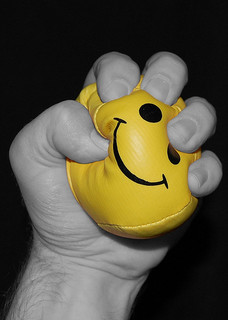

Acupuncture for Stress Relief
While those who practice acupuncture and many of the patients who have received acupuncture therapy are familiar with the fact that acupuncture can reduce stress. The issue has been that there is no understanding behind the "why" of this.
A study published in the Feb. 2013 issue of the Journal of Endocrinology revealed that science may be getting closer to the answer to this question. Researchers studied the effect of using acupuncture on rats in an area below the knee, the "Zusanli" point, that both rats and humans have. The 10-day study demonstrated that when this point received acupuncture treatments, the body's natural bio-chemical stress reactions were lessened. Human study will be needed before traditional science accepts these types of results as proven.
Exercise to Relieve Stress
Exercises to relieve stress and anxiety range from pressure point massage to fully involved physical activity.
The method or methods you choose to use will depend on many factors including amount of time you have, location and personal preferences. For instance, if you are at the office, it is more likely you can take a few moments to deep breathe and stretch your neck and shoulders than it is that you can leave work to go for a jog. When the baby is fussy, you might benefit most from pressure point massage. It's helpful to learn more than one method so whatever situation you find yourself in, you'll have something calming at your disposal.
- Physical exercise: Walking, jogging, bicycling, dancing, skiing, skating, playing tennis, hiking -- all these activities involve use of your major muscles, including your heart. The activity itself provides a diversion and "feel good" chemicals, endorphines, are created by your brain.
A recent study found that after moderate physical activity, you continue to be better able to cope with emotionally-charged incidents/ideas.
- Tai Chi: Tai Chi provides a low-impact method of gentle, flowing moves that contribute to improved balance and flexibility as well as stress relief. You may wish to join a tai chi class or group to learn a series of exercises, or if you're looking for a solution to anxiety that takes only a few moments, you can check out these five simple moves.
- Yoga: Yoga is a mind-body form of exercise that consists of postures or poses and controlled breathing. There are many types of yoga; Hatha yoga is often the type that beginners choose. In addition to helping to relieve stress, yoga can also increase your flexibility and strength.
Yoga Routine for Stress Relief
Breathing to Relieve Anxiety, Anger
Reduce Stress, Anxiety with Guided Imagery
Excellent Resource for Mindfulness-Based Stress Reduction
Effects of Stress on Health and Ways to Combat Those Effects
Effects on Health
| Good Ways to Combat Effects
|
|---|---|
Weight Gain and Diabetes
| Exercise and physical activity help to defeat the body's reaction to stress by holding onto fat and the production of hormones that affect glucose metabolism
|
Weakened Immune System
| In addition to eating a nutritional and balanced diet, fight the effects of stress that weakens your immune system by developing support systems
|
Hypertension and Memory Loss
| Over a period of time, continued anxiety and other stress reactions can lead to high blood pressure; people with hypertension are more likely to have memory and other cognitive impairments. Use brain games daily to both strengthen your cognitive skills and take your mind away from stressful thoughts.
|
Stress Reduction Techniques
Whether you are feeling generally stressed-out or anxious, or just have certain situations -- or people -- that cause you to feel emotionally overwrought, one or more of these stress relief techniques should be able to help you cope.
- Limit Caffeine: Whether you're getting your caffeine through coffee, tea, soda, or the currently popular energy drinks, it is a chemical that not only keeps you awake but can also lead to jangled nerves. Cut back slowly on your daily caffeine intake to avoid caffeine withdrawal headaches, but after a few weeks, see if a lower caffeine intake doesn't lead to an overall calmer, less "wired" experience.
- Control Your Breathing: If controlled breathing can aid a woman in labor to control her pain and anxiety, imagine what it can do for you in day-to-day situations. Controlled breathing to reduce anxiety can be as simple as closing your eyes for a few moments and taking deep, slow breaths. Three controlled breathing techniques are explained here.
- Check in with a friend: Take some time in your day to visit or chat with a friend or family member with whom you have a positive relationship. Not only will the distraction from the stressful situation be calming, but positive interactions such as these can actually cause the release of beneficial hormones and pheromones, leaving a lasting, less-stressed feeling.
- Laugh: Laughter can be the best medicine! There's even a type of yoga, laughter yoga, dedicated to the health benefits of laughter.
- Cry: Most of us know that a good cry can be cleansing and a good way to relieve stress. No one enjoys crying, but sometimes the tears just won't stay away. Go with the flow. It turns out that crying as a stress relief method is beneficial because adrenaline and other stress-induced chemicals in your body are washed out in the tears shed.
- Guided Imagery: Get comfortable, relax your breathing, and picture in your mind a place or situation that makes you feel calm and happy. This may take only a few moments, particularly after you have practiced it a few times. This is also a good way to turn off those nagging thoughts that won't allow you to go to sleep at night.
- Mindfulness Based Stress Reduction: For more than three decades, this method of interrupting the cycle of stimulus then response has been used in hospitals around the United States to support people in their efforts to reduce stress, anxiety and depression as well as improve the coping mechanisms of those who have chronic pain.
The program demonstrates how to be fully in each moment and in doing so, achieve improved control of your reactions to situations and stimuli.
Authoritative Resources on Stress and Stress Management
- Relaxation techniques: Breath control helps quell errant stress response
Controlled breathing reduces anxiety and stress - Black tea soothes away stress
UCL Media Relations. Read Press Releases. Find an expert. Contact your media officer. Receive embargoed releases. Tell us your story. Film on campus. Tips on working with the media. Register as an expert - 3 Powerful Breathing Relaxation Techniques
Relieve stress with these breathing relaxation techniques. Use your breath to melt tension away, energize your cells, and create a sense of well-being in your body. The following breathing techniques... - Exercise, Yoga, and Meditation for Anxiety and Depression - April 15, 2010 - American Family Physici
The American Academy of Family Physicians, a peer-reviewed journal, explains the uses of exercise, yoga and meditation to aid in the relief of anxiety and depression.
15 Ways to Relieve Your Stress Right Now
Here are a few more ways to help you manage your life with less stress and anxiety:
- Drink Black Tea: A small study at University College London found that after six weeks of drinking four cups of black tea daily, participants had lower levels of cortisol, a stress hormone, in their blood system after a stress-inducing event than participants who drank other beverages.
- Music: Listening to music can be very therapeutic. When you're aiming to feel calmer, choose music that has a relaxing effect on you.
- Write: Pour out your feelings in words on paper. You can try writing for a specified time and just let whatever comes to mind flow through your hand and onto paper or type away on your computer. Make a to-do list or organize a plan. Write a letter to that someone or something that is bothering you and pull out all the stops; it's a letter you will never send, but you may find some relief just being able to vent your thoughts and feelings.
- Meditation: Meditation has everything to do with you, with getting to the center of your being. It is mystical on the sense that in meditation you can learn more about yourself and even direct your conscious self by tapping into your subconscious. Dr. Deepak Chopra, a world-renowned expert on psychology and meditation, provides an example in this video.
- Chew Gum: For some people, the act of chewing gum has been shown to reduce cortisol levels, a biochemical substance released in the body as an automatic physiological response to perceived stress.
- Keep a Journal: Make time each day to write down something in a journal where you record that which you are thankful for in your life, whether it be something large or small.
- Take a Nap: Napping for even 15 to 20 minutes can give your mind the opportunity to "reset" itself, meaning that when you awaken you will feel less negatively stressed and more ready to handle the challenges facing you. Research published in Brain, Behavior, and Immunity demonstrated that napping can reduce blood cortisol levels.
- Get Close to an Animal: Having a pet dog or cat has been demonstrated to lead to lower overall levels of stress, lowering blood pressure and improving self-esteem. If you can't or don't own a pet, visit the zoo, a friend who has a pet, or get back to nature with a walk in the woods or at the shore and pay attention to the plants and creatures you encounter.
- Visualization: Close your eyes for a few moments and visualize a peaceful scene in your imagination. Imagining rain drops falling softly on the window or watching the waves meet the sand can bring a calmness to both mind and body.
- Scents: Smell is one of our most primitive senses. Pleasant smells can calm or arouse us, depending on the scent and the mood you wish to set. Lavender is a scent frequently used to promote calmness, but most any scent that is pleasant to you should work. Light a candle or incense; lightly spray on your favorite scent; steam herbs in a shallow pot on the stove -- the method used isn't as important as the scent itself.
- Draw: Maybe you're a doodler or an artist in your own right. What you draw doesn't matter, just let creativity flow through your mind and through your hand. The drawing itself may be cathartic, or the "vacation" from stressful thoughts while the creative juices flow may revitalize you.
- Take a Deep Breath: And then another. Breathe slowly and deeply, using your abdominal muscles. Concentrate on the activity of breathing. You may also want to visualize blowing away your stress as you exhale and bringing in the calm as you inhale.
- Turn the TV, Radio, Computer, Cell Phone Off: There's a lot of stimulation coming from these electronic devices, even when they are merely in the background. Limit the noise around you. Turn off or dim the lights. Be free from technology for a little bit and be present within yourself.
- Take a Walk: Walking outdoors would provide a change of scenery and fresh air along with physical activity, but sometimes you must remain indoors. If so, walk in place, moving arms and legs at a moderate to brisk pace. The movement helps to dissipate some of the negative energy from stress and may also help to lower blood pressure.
- Progressive relaxation: Start at one extreme or the other -- at the top of your head or at your toes and consciously relax the muscles in one area before moving ahead to the next group of muscles. By time you've worked your way totally from one direction to the other, you'll feel calmer.

Additional Stress Relief Methods
- Aromatherapy for Stress Relief
- What is Progressive Muscle Relaxation (PMR)?
Progressive Muscle Relaxation is a simple and effective technique for relaxing tense muscles, reducing stress and alleviating anxiety. - Stress Relief Balls - Simple Stress Relief
Most of us experience stress from work, our lives, or at home. Stress relief balls can provide simple stress relief no matter where we are. Learn how to relieve your stress with stress balls, and live a healthier, stress free life.
What method works best for you in relieving stress?
Tips to Relieve Stress and Anxiety
Stress management and the alleviation of anxiety is a personal, individual journey. The tips offered here are just some of the more popular ones used by people such as yourself who are also seeking calmness and positivity.
What have you found useful to reduce these issues in your own life? Would you be kind enough to share your tips to relieve stress and anxiety with others?


